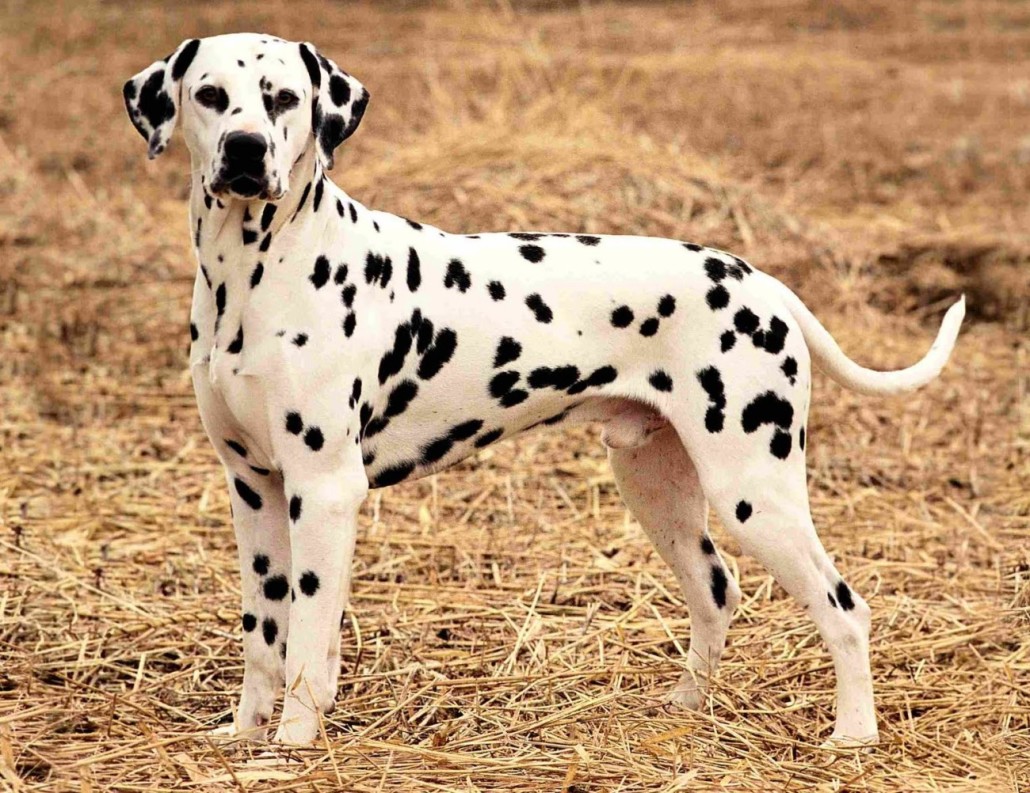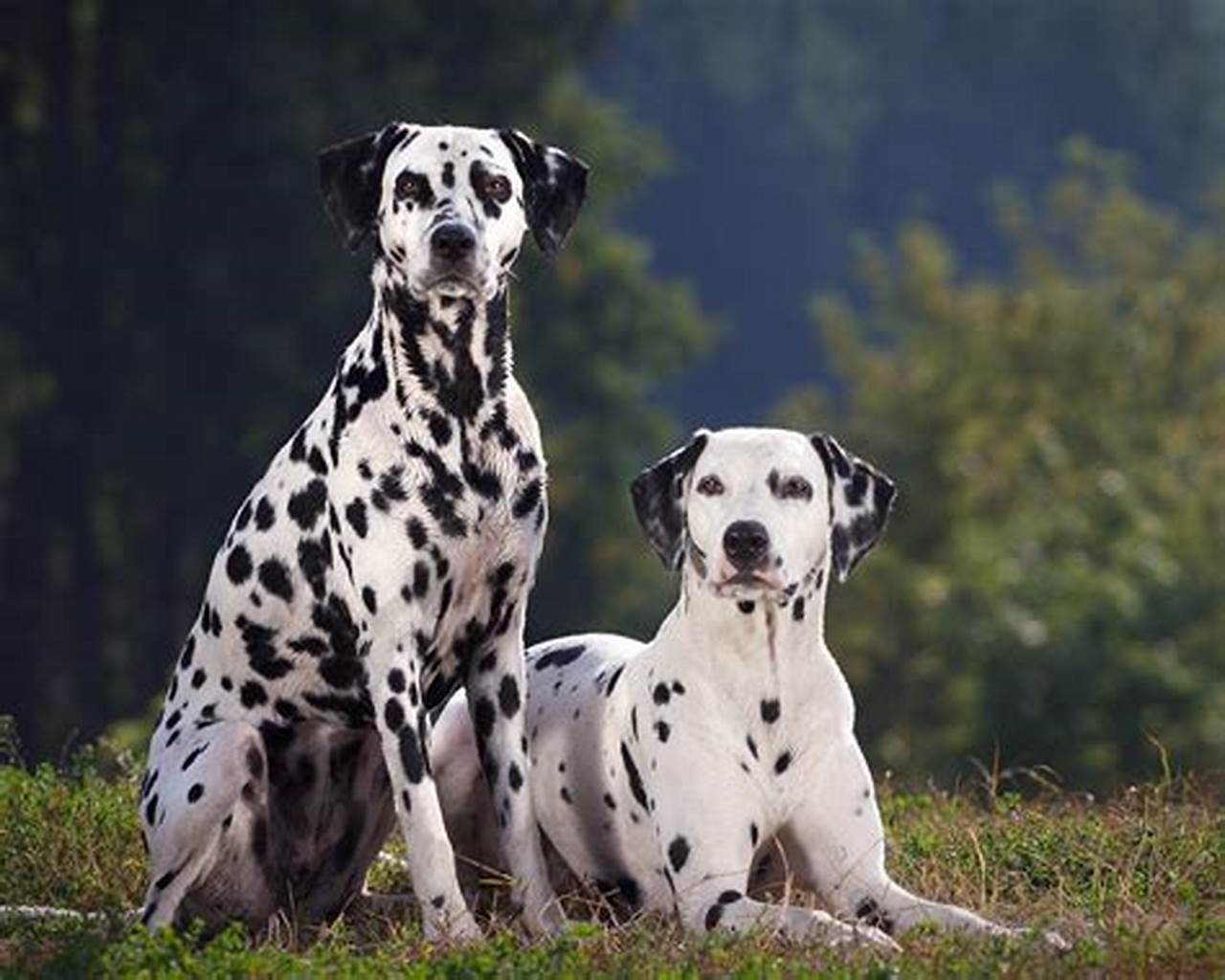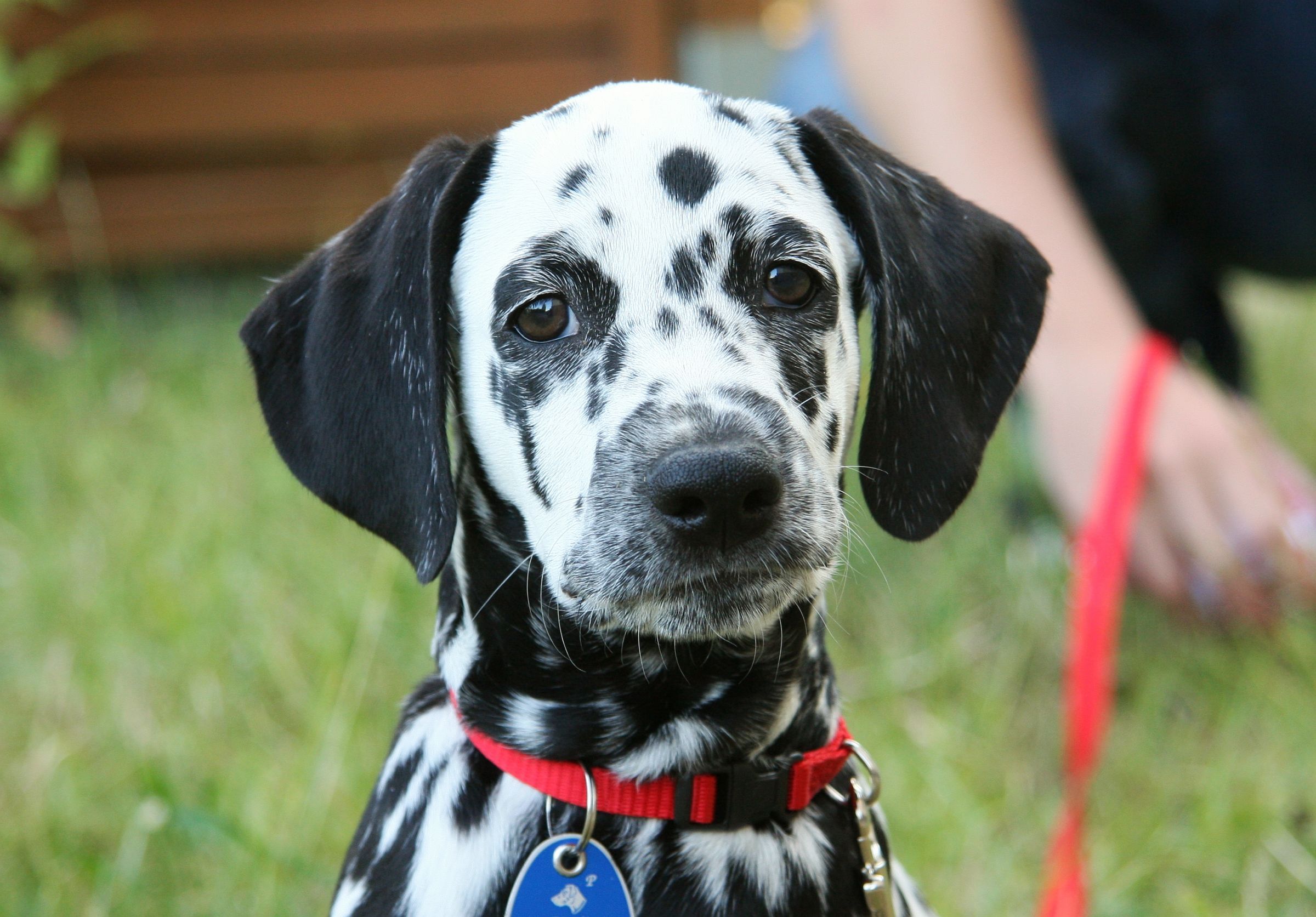
The Dalmatian is one of the most recognizable dog breeds in the world, thanks to its striking spotted coat and a history steeped in mystery and versatility. The breed’s exact origin is debated, but its name comes from the Dalmatia region of Croatia, where early records describe similar spotted dogs working alongside horse-drawn carriages and guarding property.
Over centuries, Dalmatians served as coach dogs, firehouse mascots, circus performers, and guardians, showcasing their intelligence, speed, and grace. In the 1800s, they became associated with British nobility, running beside horse-drawn carriages as both companions and protectors. The breed was officially recognized by the American Kennel Club (AKC) in 1888.
Dalmatians are famous for their distinct look and vibrant personality, and they surged in popularity thanks to books and films like 101 Dalmatians. While they’re not as commonly seen as Labradors or Golden Retrievers, they remain a beloved breed for active families and experienced dog owners.
Elegant and athletic, the Dalmatian is built for speed, endurance, and symmetry.
• Coat: Short, dense, sleek, and glossy.
• Color:
o White with black or liver-colored spots.
o Puppies are born pure white, and their spots develop as they age.
• Size:
o Height: 19–24 inches (48–61 cm)
o Weight: 45–70 lbs (20–32 kg)
• Head & Expression: Flat, broad skull with a well-defined stop; intelligent and friendly eyes.
• Ears: Medium-sized, set high, and carried close to the head—often spotted.
• Tail: Slightly curved and tapering—carried in a saber-like shape.
• Body: Well-muscled, lean, and graceful with long, elegant limbs and a deep chest.
Dalmatians are lively, intelligent, and sensitive, with a strong desire to run, play, and be with their people.
• Energetic and Athletic: Bred for endurance—needs daily exercise and mental stimulation.
• Intelligent and Trainable: Learns quickly but may show a stubborn streak if not properly motivated.
• Sociable and Playful: Enjoys human company and often bonds strongly with one person.
• Alert and Watchful: Excellent watchdogs—not aggressive but protective and vocal.
• Strong-Willed but Loyal: With proper leadership, they become devoted and dependable companions.

The Dalmatian is a perfect fit for active individuals or families seeking a high-energy, loyal, and visually striking companion.
• Striking Appearance: Its spotted coat and elegant build make it one of the most iconic dog breeds.
• Versatile and Trainable: Excels in obedience, agility, running, hiking, and even acting.
• Family-Oriented: Friendly with children and people when well-socialized.
• Protective and Loyal: Great watchdog that’s loyal but not overly aggressive.
• Affectionate Companion: Loves being part of daily life and thrives on inclusion and attention.
Dalmatians need active lifestyles and consistent companionship to thrive.
• Training:
o Start early with positive reinforcement—firm, gentle guidance builds trust.
o Socialization with people, other pets, and various environments is key.
• Exercise:
o Requires at least 60–90 minutes of daily activity.
o Ideal for runners, hikers, or those who enjoy outdoor play.
• Grooming:
o Short coat sheds year-round, despite its sleek appearance—brush weekly (or more often during shedding seasons).
o Bath occasionally and keep ears, teeth, and nails clean and trimmed.
• Nutrition:
o Needs a balanced diet low in purines, as they can be prone to urinary stone formation.
• Companionship:
o Does not do well in isolation—needs to be involved in family life.

While typically robust, Dalmatians are prone to some breed-specific health concerns:
• Deafness:
o About 30% of Dalmatians are deaf in one or both ears—BAER testing is essential.
• Urinary Stones:
o Due to a unique uric acid metabolism, diet must be monitored.
• Hip Dysplasia
• Skin Allergies
• Obesity (if under-exercised)
Routine vet care, quality nutrition, and activity help Dalmatians lead long, healthy lives—often 10–13 years or more.
Compared to the Labrador Retriever, the Dalmatian is more independent and sensitive, requiring a firmer but fair approach to training. Unlike the Border Collie, it is less intense mentally but more visually striking and watchful. It also tends to be more energetic and vocal than breeds like the Vizsla or Weimaraner.
This breed is ideal for active families, athletes, or experienced dog owners who can offer plenty of exercise, structure, and companionship. If you want a dog with beauty, brains, and boldness, the Dalmatian won’t disappoint.
However, if you lead a sedentary lifestyle or don’t have time for daily training and activity, a Dalmatian may become bored, vocal, or destructive.
United Pet Club is here to help you on your journey with the magnificent Dalmatian. Whether you're adopting, finding a breeder, or seeking health and training advice, our platform offers comprehensive resources and support.
Explore our breed guides, health tips, and community to see how a Dalmatian could bring joy, energy, and elegance into your life.